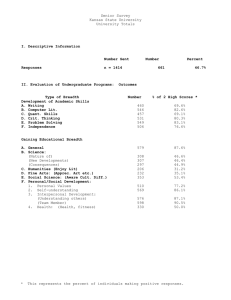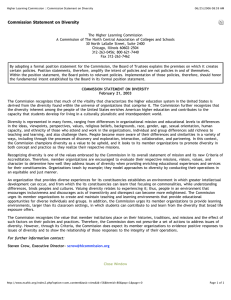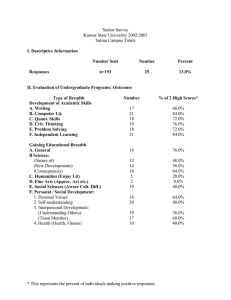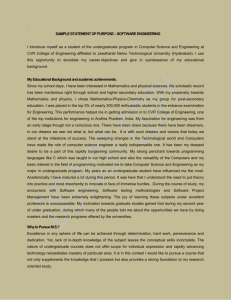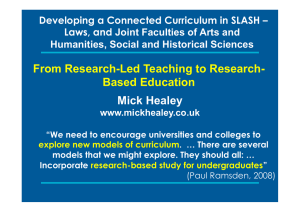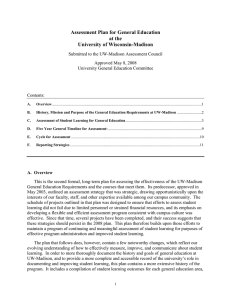Commission Statement on General Education
advertisement
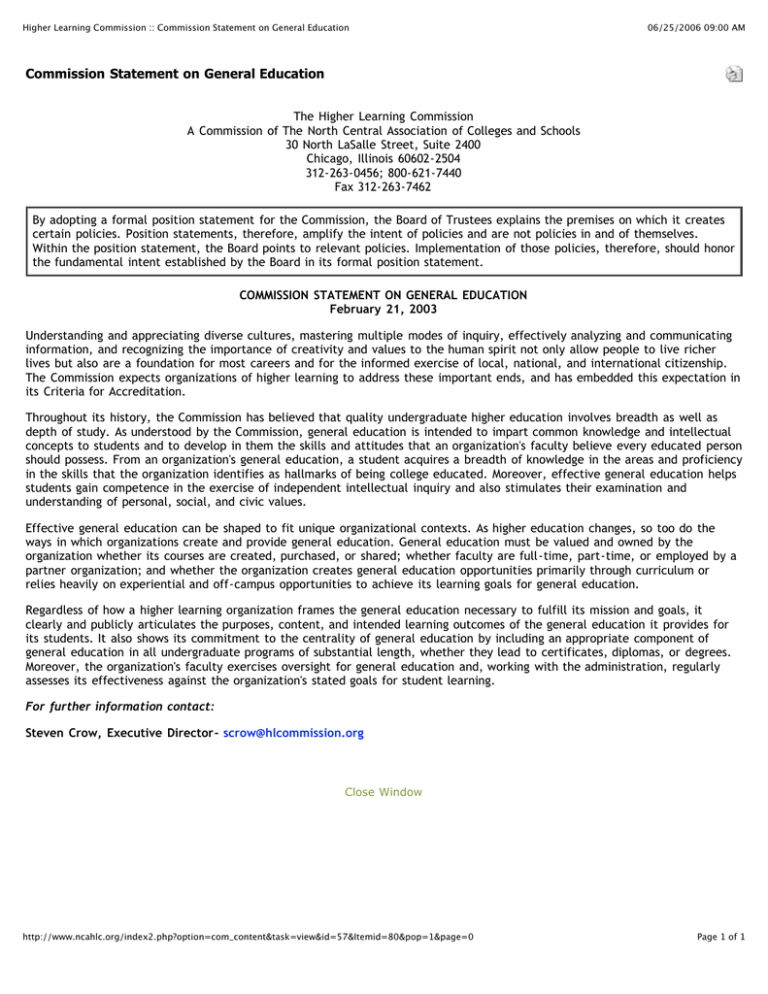
Higher Learning Commission :: Commission Statement on General Education 06/25/2006 09:00 AM Commission Statement on General Education The Higher Learning Commission A Commission of The North Central Association of Colleges and Schools 30 North LaSalle Street, Suite 2400 Chicago, Illinois 60602-2504 312-263-0456; 800-621-7440 Fax 312-263-7462 By adopting a formal position statement for the Commission, the Board of Trustees explains the premises on which it creates certain policies. Position statements, therefore, amplify the intent of policies and are not policies in and of themselves. Within the position statement, the Board points to relevant policies. Implementation of those policies, therefore, should honor the fundamental intent established by the Board in its formal position statement. COMMISSION STATEMENT ON GENERAL EDUCATION February 21, 2003 Understanding and appreciating diverse cultures, mastering multiple modes of inquiry, effectively analyzing and communicating information, and recognizing the importance of creativity and values to the human spirit not only allow people to live richer lives but also are a foundation for most careers and for the informed exercise of local, national, and international citizenship. The Commission expects organizations of higher learning to address these important ends, and has embedded this expectation in its Criteria for Accreditation. Throughout its history, the Commission has believed that quality undergraduate higher education involves breadth as well as depth of study. As understood by the Commission, general education is intended to impart common knowledge and intellectual concepts to students and to develop in them the skills and attitudes that an organization's faculty believe every educated person should possess. From an organization's general education, a student acquires a breadth of knowledge in the areas and proficiency in the skills that the organization identifies as hallmarks of being college educated. Moreover, effective general education helps students gain competence in the exercise of independent intellectual inquiry and also stimulates their examination and understanding of personal, social, and civic values. Effective general education can be shaped to fit unique organizational contexts. As higher education changes, so too do the ways in which organizations create and provide general education. General education must be valued and owned by the organization whether its courses are created, purchased, or shared; whether faculty are full-time, part-time, or employed by a partner organization; and whether the organization creates general education opportunities primarily through curriculum or relies heavily on experiential and off-campus opportunities to achieve its learning goals for general education. Regardless of how a higher learning organization frames the general education necessary to fulfill its mission and goals, it clearly and publicly articulates the purposes, content, and intended learning outcomes of the general education it provides for its students. It also shows its commitment to the centrality of general education by including an appropriate component of general education in all undergraduate programs of substantial length, whether they lead to certificates, diplomas, or degrees. Moreover, the organization's faculty exercises oversight for general education and, working with the administration, regularly assesses its effectiveness against the organization's stated goals for student learning. For further information contact: Steven Crow, Executive Director- scrow@hlcommission.org Close Window http://www.ncahlc.org/index2.php?option=com_content&task=view&id=57&Itemid=80&pop=1&page=0 Page 1 of 1

